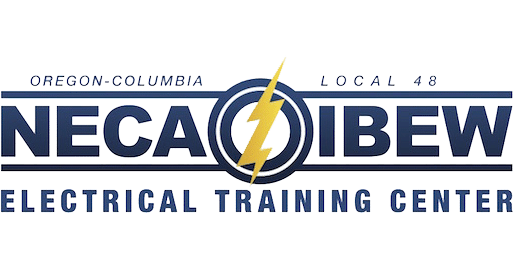Ben Franklin once said, “An investment in knowledge pays the best interest.” The knowledge provided from our education, both the classroom and out in the field, is what separates the wheat from the chaff. National JATC’s do not graduate simple installers; they graduate electricians; however, your education doesn’t stop once you complete the program, and we, as electricians, have choices of how we continue our education post-apprenticeship. It is crucial for our membership to continue to pursue relevant education, lest we risk losing certain types of work, the result of which is lost market share.
Upon completing an apprenticeship, common colloquial terms used to describe this accomplishment include “turning out” or “topping out.” While turning out has its roots in direct definition, the maturing of an individual topping out bears its roots in construction.
When steel workers place the last beam on a building, it is ritualistically referred to as “topping out”; the top of the building has been established and installed. But topping out only establishes the shell of the building. The rest of the materials, finishes, systems, and facade are still to be completed. In our apprenticeship, we have installed the framework of our career. It is up to us to complete the rest of the building. Continuing education provides the materials for you to complete your building and thus define your career. Will you use quality materials and fine craftsmanship and workmanship, or will you resort to cutting corners and using cheap components? Will you build something to be proud of, or something that is “serviceable enough?”
Quality continuing education is important to your career. While there are several studies and theories on learning and retention rates on what you learn, it is generally accepted, and demonstrated, that, unless concepts are periodically revisited, the ability to retain and use the information from them are reduced. Tasks such as bending conduit and pulling wire is easily recalled, because we practice them on an almost-daily basis in our line of work. Making determinations on vector calculations of apparent power, or wiring up a digital timing relay may not be so clear, if one has not worked on it frequently, or, as is often the case, since apprenticeship.
What is the requirement to maintain your electrical license? As a journeyman inside wireman, Oregon and Washington require 24 credit hours, split up:
Eight hours of code update
Four hours for code change in each respective state
Twelve hours of code-related credits in Oregon, and twelve hours of industry-related credits in Washington
Note that classes you take may confer fewer credits than the number of hours you spend in the class. Governing bodies often base the credit hours of the time spent in the code for a specific class and approved facilities submit an outline for code-relevant topics in the class. We may take a class more than once in a cycle, but you will not receive additional credit.
There are several trends regarding the opinion and approach of continuing education, the biggest factor of which is time. As we settle into our careers, we have things we want to do and enjoy. Licensees desire to be as efficient as possible as it pertains to this matter. Often, a class that has, say, 24 hours of total class time, and only eight credit hours, does not appeal to many. Many take courses they took in their previous license cycles, going through the motions, just to get their credits completed. As busy as our lives are, several electricians wait until the last second to complete their education, reducing the time available to take classes. More often than not, they turn to online course-work to complete their obligation. While the classes are approved by governing bodies, they lack in hands-on training, and, depending upon a student’s learning style, may not provide the best retention rates.
These patterns and objections are counter to what they provide at national JATCs, such as our training center. Classes such as Programmable Logic Controller (PLC) curriculum, Instrumentation certification, Fire Alarm, and Communications, though they may lack in credit hours, relative to class time, provide valuable information that proves very useful in the field. The skills you gain from these classes offer more opportunities, such as taking calls from the hall when a contractor needs or prefers these specific skills. Adding certifications and skills offered by these classes provide the student with an opportunity to demand more pay. Skills such as PLC programming, controls engineering, instrument calibration, welding, and so on, are considered specialty skills, and give you the ability to command higher rates of pay while you perform them. As an added benefit to taking classes at a national JATC, instructors commissioned to work at these training centers receive further education on how to teach to multiple learning styles, incorporating additional activities to provide the widest reach possible in a specific lesson.
Apprentices showing an interest in specialty classes, especially those immersed in a particular discipline at work, may have opportunities available to enroll. The prices for these classes are very affordable. Remember journeymen have priority over apprentices, and an apprentice may be bumped if the class is full, and a journeyman wants to sign up. The apprentice will receive a refund if this happens.
Our trade provides several unique disciplines that may capture your attention and interest. If you find that the training center doesn’t provide education for a particular subject, let us know! We track and monitor the feedback and interest in particular subjects, and, there is enough interest in a topic, we can build the curriculum and hold the course. We are here to service the educational needs of the membership.
The minimum requirements for your license are not the maximum requirements; you may take as many classes as you prefer in a license cycle. Dedicating time for course work will give you more opportunities to pursue higher levels of knowledge. Continuing education is your higher education once you complete your apprenticeship. Taking the same classes repeatedly, or not challenging yourself, does no favors for your career. Education is a way of “future-proofing” your career, providing you with an opportunity you many not have, if you didn’t pursue those time-heavy courses. Quality education and certifications are ways for you to buy more opportunities and take calls from the hall that have special requirements. With all the benefits at hand, why not take the time to invest in yourself?
Steven Worsley
December 26th, 2019



